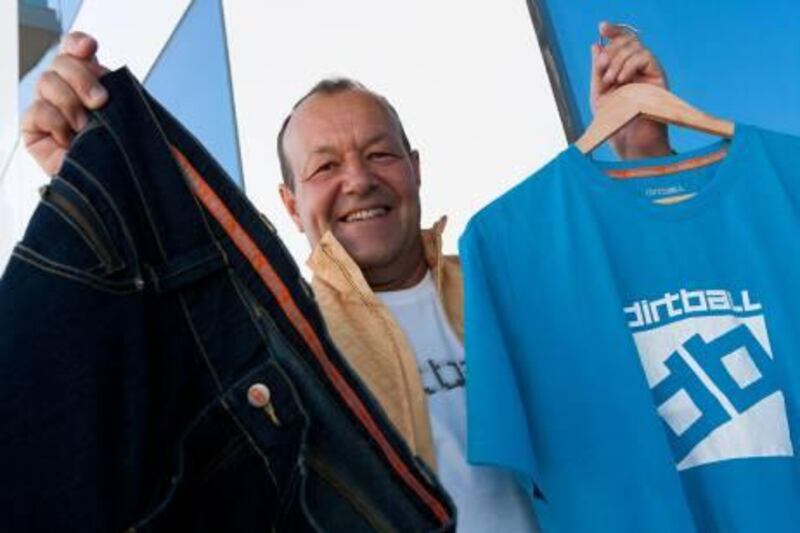DUBAI //A T-shirt made of discarded plastic bottles may help the UAE warm to recycling.
Plastic bottles are usually recycled into more bottles or film, but the Dubai clothing retailer Kris Barber says they can become something a little more exciting - a T-shirt, a pair of jeans or a sports cap.
"Rather than waste going to the landfill, why not use it to make something good?" says Mr Barber, a Briton who conceived the idea to use yarn made from recycled plastic about two years ago.
A T-shirt made of recycled plastic is Dh120; a cap Dh15.
The yarn is produced in China for a British brand, Greenspun. As with the traditional recycling process, bottles made from polyethylene terephthalate (Pet) are sorted, washed, then shredded into pieces less than a centimetre in length.
The plastic is then melted to produce pellets. The company melts Pet pellets and makes a fibre, which is then spun into yarn.
"The yarn was originally developed for shopping bags," says Mr Barber, who had been working in the clothing industry for more than 20 years when he first came across the plastic yarn.
"I saw some of the fabrics and thought it is not 1 million miles away from what we use for clothes."
This was the start of DGRADE Clothing, a company that produces a range of T-shirts, sportswear and jeans from the recycled fibre.
The plastic yarn can be mixed with cotton in varying degrees. A mixture of equal measures is used to make T-shirts, while one containing 35 per cent cotton is used to make jeans and fleece tops.
"Polyester gives you the hard-wearing and stability, while cotton makes the clothes soft," he said.
A typical sports cap made by the company contains three 500-millilitre water bottles. A pair of sports shorts uses about 30 bottles. Both are 100 per cent Pet.
In the UK, the company sells some of the clothes under the extreme sportswear label Dirtball, aimed at teenagers. Mr Barber expanded the business to Dubai a year ago.
The clothes are made in China, but he hopes to bring some of the manufacturing process to the UAE by having them sewn locally. He also hopes the clothes will be available through local retailers.
At the moment, business is mostly through promotional clothing and merchandise.
"It is mainly corporate clients who are interested in using sustainable merchandise at events," Mr Barber says. "I would like to see my brand in retail environments here as well."
While the idea provides an exciting second life for plastic waste, the company should examine its own effect on waste generation, says Tatiana Abella, the co-founder and managing director of Goumbook, an online directory for sustainable products.
"The concept is amazing. It is fantastic that you can produce clothes from waste," Ms Abella says. "People wear it and it is so soft they don't even think it is plastic. The question is, what happens to the clothes once they are discarded?"
The clothes need to be handled responsibly at the end of their life, she says, or they will end up in a landfill.
"Consumers need to be aware that, yes, this product can remove waste from the landfill, but they still need to be responsible with it," Ms Abella says. "I would really like to see an after-sales commitment from the brand further down the line."
Mr Barber says customers wishing to recycle clothes can call the company and they will be given a 20 per cent discount on their next purchase.
Items made of 100 per cent Pet are "fairly easy" to recycle, he says, but fabrics made of plastic and cotton are not.
The company is trying to establish contacts with charities that can offer any clothes for re-use to people in underdeveloped countries.
Mr Barber says his venture has changed his outlook. "It has definitely made me more conscious about recycling," he says.






